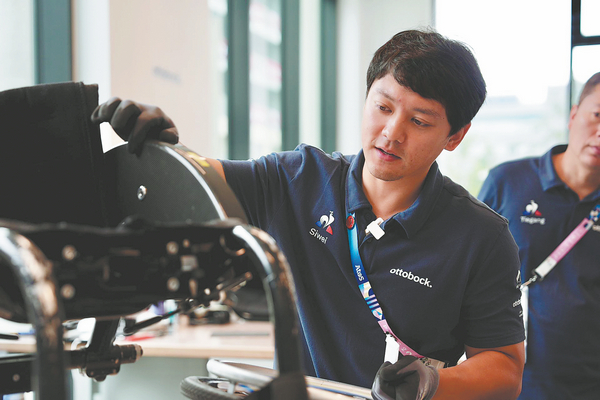

Expertise and knowledge acquired over years keep the Paralympians going in the arena, Li Yingxue reports.
If a wheelchair malfunctions, it's like a body catching a cold. For Zhu Siwei, a "wheelchair doctor", diagnosing these issues has become second nature.
Using techniques — observation, listening, questioning, and examination — he's spent the past decade honing his craft, fixing wheelchairs one by one.
At 33, Zhu brought his expertise to the world stage this summer at the Paris Paralympics, where he worked in the repair centers at both the Paralympic Village and competition venues.
His role was crucial. Much like the medical care provided to athletes, wheelchair repair is an essential part of Paralympic support, ensuring athletes can compete and live comfortably. As part of a technical team, Zhu offered free repairs to athletes and officials from around the globe, keeping their equipment in top shape.
"Every day is different," Zhu says. "Sometimes it's a simple issue, like a loose screw or a rusted part, but other times it requires a detailed examination to figure out what's wrong. Some repairs take half an hour; others can stretch to two or three hours."